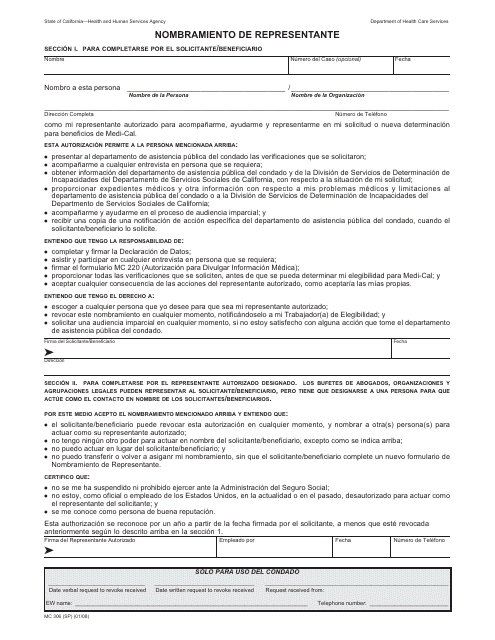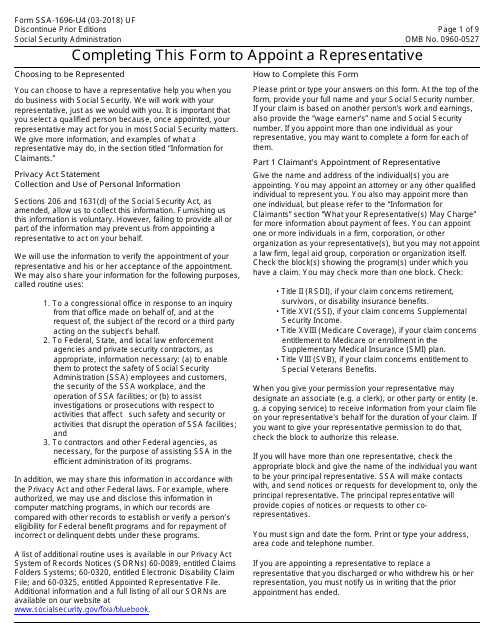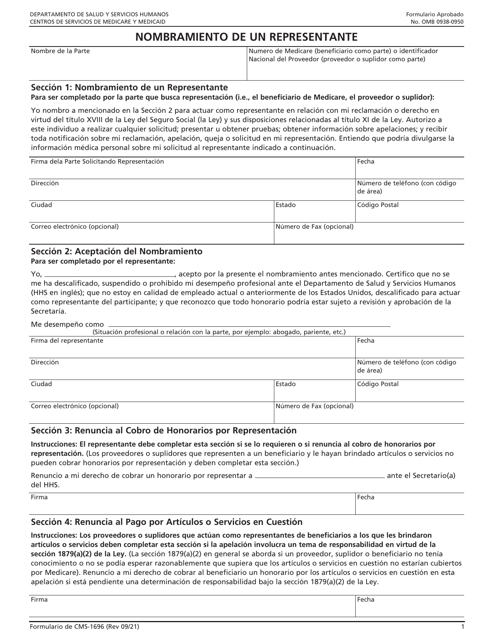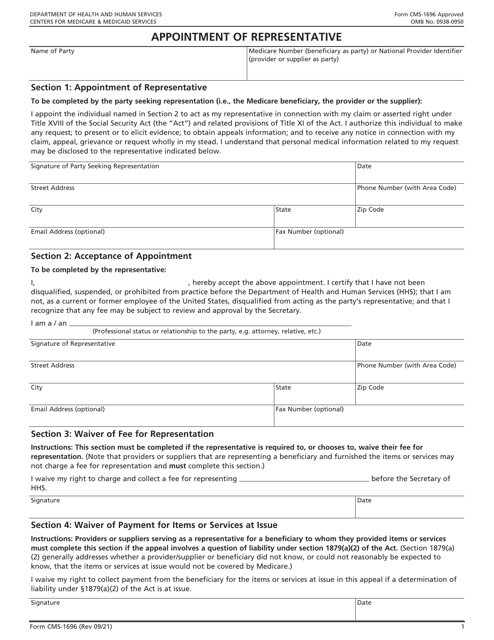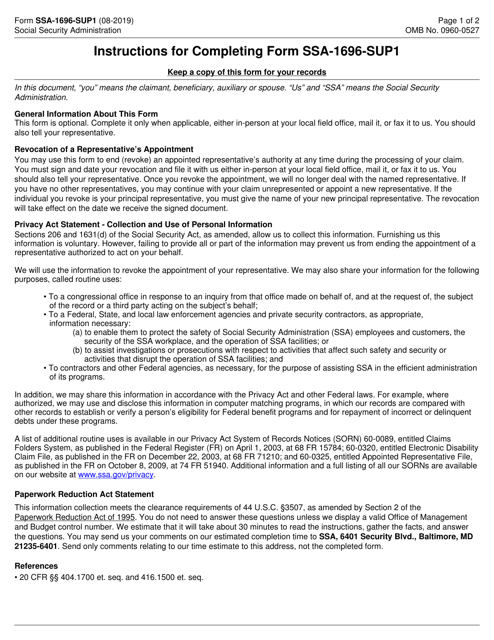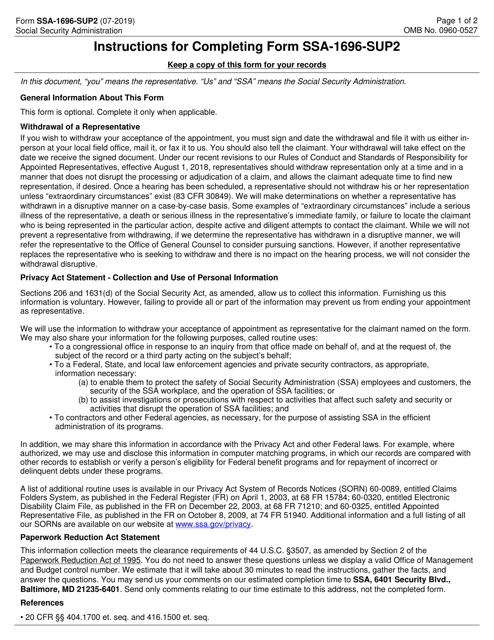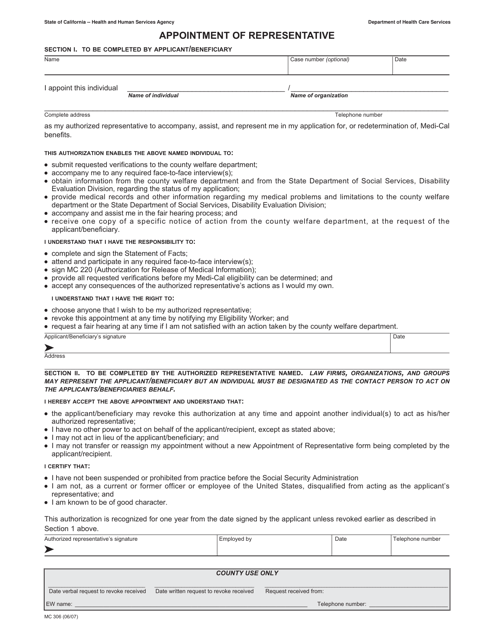Free Appointment of Representative Forms
What Is an Appointment of Representative Form?
An Appointment of Representative Form is a legal document completed by an individual to give someone else authorization to act on their behalf and file appeals and complaints. Usually, this form is prepared for a family member, friend, physician, or attorney who is able to represent another person’s interests – you cannot authorize an organization or law firm to file documentation for you.
Alternate Names:
- Appointment of Personal Representative Form;
- Appointment of Representative Letter.
For a full list of similar forms and letters please browse our library of forms below.
How to Fill Out an Appointment of Representative Form?
An Appointment of Representative Letter can contain the following details:
- Name of the individual who seeks representation for Medicare or Social Security-related issues . Additionally, you may be asked to enter your Medicare Number, National Provider Identifier, social security number, or another identification number.
- Name of the person you choose to act as your representative . You confirm your consent to the representation which includes making requests, presenting evidence, obtaining information on the appeals, and receiving notices in connection with your appeal, request, or claim. The individual you identify in the form will be able to discover your personal medical information when working on your appeal.
- Acceptance of appointment . Your soon-to-be representative must agree to the appointment and certify they have no restrictions of practice from the Department of Health and Human Services. This person must state their personal or professional relationship to you (a relative, lawyer, etc.), provide their contact information, sign and date the form.
- Description of the claim the representative will handle . For instance, you can claim or appeal disability benefits, retirement benefits, veteran's benefits from the Social Security Administration (SSA) by checking the appropriate boxes to specify the reason for authorization.
- Arrangement of fees . This part of the document covers a waiver of fee and payment for services and items. If the representative has to waive these payments or simply chooses to do that, they must fill out an additional section - write down the name of the person they are going to represent, confirm the waiver of the right to collect a representation fee and payment for the items and services, sign and date the document. Alternatively, the representative may confirm their intention to request the fee.
- Signature of the person who wants representation, their contact information, and date of signing .
Once the form is completed, send it to the same office or department where you are mailing your complaint, appeal, or request for an initial decision. Usually, an Appointment of Representative Form is valid for one year from the date of signing – you may submit an original document or its photocopy with every grievance or appeal made on behalf of the person you represent.
How Do I Become an Authorized Representative for Social Security?
The easiest way to appoint a representative to act on your behalf and handle your social security benefits is to fill out the SSA Appointment of Representative Form. Whether you want the SSA to review the initial decision or authorize a family member to collect social security benefits, this is the document for you. Use this form to appoint a person you know as your personal representative or contact your local Social Security office to find a non-profit entity or legal aid service that will provide representation services for free.
The most commonly used Appointment of Representative Forms include the following:
- Form CMS-1696, Appointment of Representative, is a document used country-wide by Medicare enrollees who appoint representatives to file requests, complaints, and appeals;
- Form SSA-1696, Claimant’s Appointment of a Representative, is completed by the person who needs representation for any social security benefits-related matter;
- Form MC 306, Appointment of Representative, is used by California residents to appoint personal representatives to handle their Medi-Cal benefits;
- Form 202, Appointment of Representative, is filled out by Alabama residents who require representation to apply and claim for Medicaid benefits.
Related Forms and Templates:
Documents:
7
Use this form while dealing with the Social Security Administration (SSA) to appoint a third-party representative to act on your behalf.
This form is used to appoint a representative in the state of California. It is necessary for certain legal or administrative matters.

